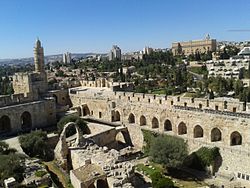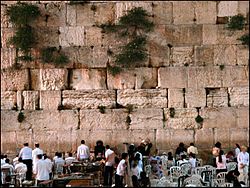See all articles relating to: Israel

Israel is a country located in the Middle East, bordering the Mediterranean Sea to the west and surrounded by several countries including Lebanon, Syria, Jordan, and Egypt. The history of Israel dates back to ancient times, with the region being home to various empires and civilizations throughout the centuries, including the Canaanites, Israelites, Persians, Greeks, Romans, and Ottomans. The modern state of Israel was established in 1948, following the end of British mandate rule and the United Nations' approval of the partition plan for Palestine. The establishment of Israel was met with resistance from neighboring Arab states, leading to several wars over the following decades. Today, Israel is a democratic country with a diverse population and a thriving economy, but its history remains a complex and contentious issue both domestically and internationally.
Researching family history in Israel
Israel is a relatively young country, but its history and cultural diversity are rich and complex. One of the best places to start your research is the Central Archives for the History of the Jewish People in Jerusalem, which houses a vast collection of documents and records related to Jewish history and genealogy. The Yad Vashem Holocaust Museum and Research Center is also an excellent resource for those researching family members who were impacted by the Holocaust.
The MyHeritage Israel Immigration Lists record collection is a valuable resource for those researching family history in Israel. This collection contains over two million records of immigrants who arrived in Israel from 1919 onwards. The records include names, dates of birth, places of birth, and other biographical information about the immigrants, as well as details about their immigration status and travel arrangements. These records can be particularly useful for those trying to trace the immigration of their ancestors to Israel, whether as refugees or as part of the Zionist movement. The collection is searchable by name and other criteria, making it easy to locate relevant records and build a more complete family tree.
Additionally, many local archives and historical societies throughout Israel can provide valuable information about specific regions or communities. It can be helpful to reach out to these organizations directly to see if they have any relevant materials or can offer any guidance on how to proceed with your research.
See also:
Israeli ethnicity

Israel is a diverse country with a multicultural society, home to a variety of ethnic groups. The largest ethnic group is Jewish, which is divided into different subgroups such as Ashkenazi, Sephardic, Mizrahi, and Ethiopian Jews, among others. Arab citizens of Israel, who are predominantly Muslim, Christian, or Druze, make up the second-largest ethnic group. Other minority groups in Israel include Circassians, Armenians, Bedouin Arabs, and various communities of immigrants, including Russians, Ukrainians, and Ethiopians. This diverse mix of ethnicities has contributed to a rich and vibrant culture in Israel, with a wide range of traditions, languages, and customs.
See also:
Israeli surnames
Many Israeli surnames are derived from Hebrew or biblical names, while others reflect the country's diverse cultural influences and immigration patterns. Jewish surnames in Israel can be classified into different groups based on their origin, such as Ashkenazi, Sephardic, or Mizrahi. Arab surnames, on the other hand, often reflect tribal or geographic origins. Tracing the origins of a surname can provide important insights into a family's history and cultural background, and can help researchers locate additional records and information about their ancestors.
See also: